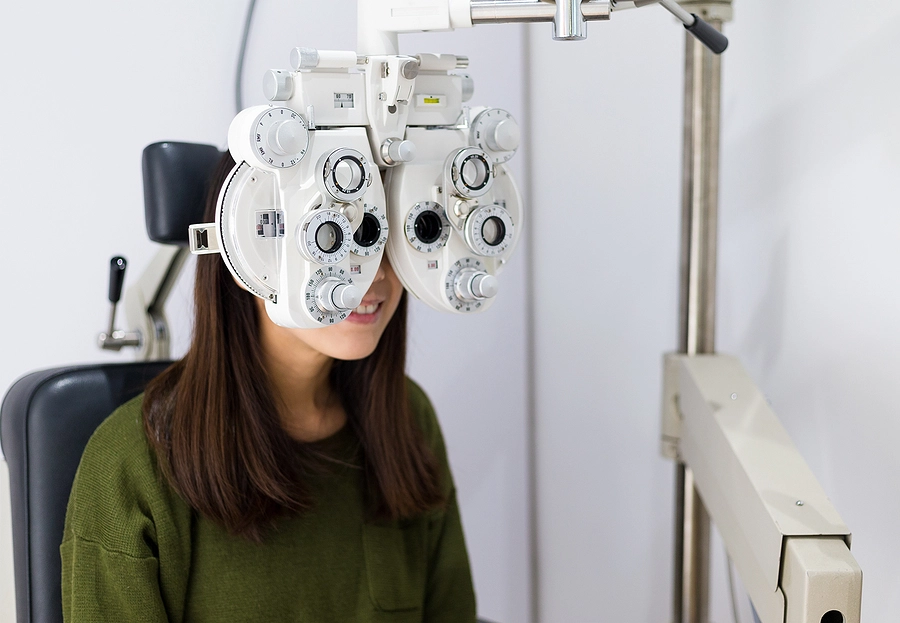Table of Contents
Losing vision due to an accident can have life-altering consequences. Whether the injury is a result of a car crash, workplace accident, medical malpractice, or defective products, the impact of vision loss extends far beyond physical impairment. In Mississippi, as in other states, individuals who suffer vision loss due to the negligence or wrongful actions of others may be entitled to compensation. Understanding how to navigate the legal process and what types of compensation are available can help those affected by such injuries secure a fair recovery.
Causes of Vision Loss in Personal Injury Cases
Vision loss can occur in various circumstances, often as a result of someone else’s carelessness or intentional actions. Some common causes of vision loss in personal injury claims include:
- Car accidents: A car crash, especially one involving airbag deployment or shattered glass, can cause severe eye injuries, leading to partial or complete vision loss. The force of the impact can also lead to traumatic brain injuries (TBI) that affect vision.
- Workplace injuries: In workplaces that involve heavy machinery, chemicals, or hazardous environments, employees can suffer eye injuries that result in vision loss. Failure to provide proper protective gear, such as safety goggles, can make an employer liable.
- Medical malpractice: Sometimes, doctors or medical professionals make errors during surgery or treatment that lead to permanent eye damage. For example, surgical mistakes during cataract surgery or an undiagnosed eye infection could cause irreversible vision loss.
- Defective products: Defective products, such as faulty safety equipment, faulty contact lenses, or harmful chemicals, can also result in vision loss if they malfunction or are used improperly.
- Slip and fall accidents: Falling objects or an individual’s fall onto hard surfaces can cause head trauma or direct eye injuries. Serious falls may damage the optic nerve or lead to retinal detachment, both of which can result in vision loss.
Proving Liability for Vision Loss
When seeking compensation for vision loss in a personal injury case, it’s important to establish that the injury was caused by someone else’s negligence or wrongful actions. The basic elements that need to be proven in most personal injury cases are:
- Duty of care: The responsible party must have owed you a duty of care. For example, a driver has a duty to follow traffic laws, and an employer has a duty to maintain a safe work environment.
- Breach of duty: The responsible party must have breached that duty. This could include running a red light, failing to maintain equipment, or providing inadequate safety gear.
- Causation: The breach of duty must have directly caused your injury. In the case of vision loss, it must be shown that the accident, product, or negligence caused the eye injury or loss of vision.
- Damages: You must prove that the injury resulted in damages, such as medical bills, lost income, and pain and suffering. For vision loss, this could also include the cost of ongoing care or rehabilitation for the eye injury.
Types of Compensation for Vision Loss
Victims of vision loss in Mississippi personal injury cases can pursue compensation for a variety of damages. The specific types of compensation available will depend on the facts of the case, the severity of the injury, and the impact on the victim’s life. Here are the most common forms of compensation:
Medical Expenses
Victims of vision loss may incur significant medical expenses. These costs can include hospital bills, surgeries, medications, eye treatments, and rehabilitation. If you need ongoing care, such as vision aids, eye prosthetics, or therapy, those costs may also be included in your compensation. Medical expenses are often the most significant part of a personal injury claim involving vision loss.
Lost Wages
If the vision loss affects your ability to work, you may be entitled to compensation for lost wages. This includes both short-term and long-term income losses. If the vision loss results in a permanent disability that prevents you from returning to your previous job or any other work, you may also be eligible for compensation for future lost earnings.
Pain and Suffering
In addition to physical pain, vision loss can result in emotional distress, anxiety, and a reduced quality of life. Individuals who suffer from partial or complete vision loss may experience depression, a loss of independence, and a significant change in their day-to-day activities. Compensation for pain and suffering is meant to address these non-economic damages and make up for the hardships caused by the injury.
Loss of Enjoyment of Life
Vision loss can affect your ability to engage in hobbies and activities that were once an important part of your life. This could include reading, driving, watching TV, or even simply walking around in the outdoors. Compensation for loss of enjoyment of life recognizes the impact of these limitations and the significant lifestyle changes that occur as a result of vision impairment.
Emotional Distress
Losing vision can lead to long-term emotional challenges, especially if the injury was sudden or traumatic. Victims may experience anxiety, depression, and a sense of helplessness. Emotional distress is a form of non-economic damage that can be compensated as part of a personal injury claim.
Permanent Disability or Disfigurement
If vision loss leads to permanent disability or disfigurement, the victim may be entitled to compensation for the long-term or lifetime impact of the injury. This could include compensation for any physical changes, the need for long-term assistance, and the ongoing psychological toll of living with vision impairment.
Working with an Attorney
Filing a claim for vision loss requires careful legal preparation. Insurance companies and defendants may try to minimize your damages or argue that the injury was pre-existing or not related to the incident. An experienced personal injury lawyer can help you navigate this process by gathering evidence, securing expert testimony, and negotiating with insurance companies to ensure that you are fairly compensated for your injuries.
A lawyer will also be able to determine if there are additional legal avenues for seeking compensation, such as holding a product manufacturer liable for a defective product or pursuing a workers’ compensation claim in the case of a workplace injury.
Statute of Limitations in Mississippi
In Mississippi, personal injury cases, including those involving vision loss, are subject to a statute of limitations. This means that there is a limited amount of time in which you can file a lawsuit for compensation. Generally, the statute of limitations for personal injury claims in Mississippi is three years from the date of the accident or injury. If you fail to file your claim within this time frame, you may lose your right to seek compensation.
Conclusion
Vision loss as a result of an accident or negligence can have a profound impact on your life. Fortunately, Mississippi law allows victims of such injuries to seek compensation for medical expenses, lost wages, pain and suffering, and other damages. If you have suffered vision loss due to someone else’s negligence, it’s important to work with an experienced personal injury attorney who can help you understand your rights and pursue the compensation you deserve. With the right legal support, you can ensure that you are not left with the financial burden of your injury while dealing with the physical and emotional challenges of vision loss.

